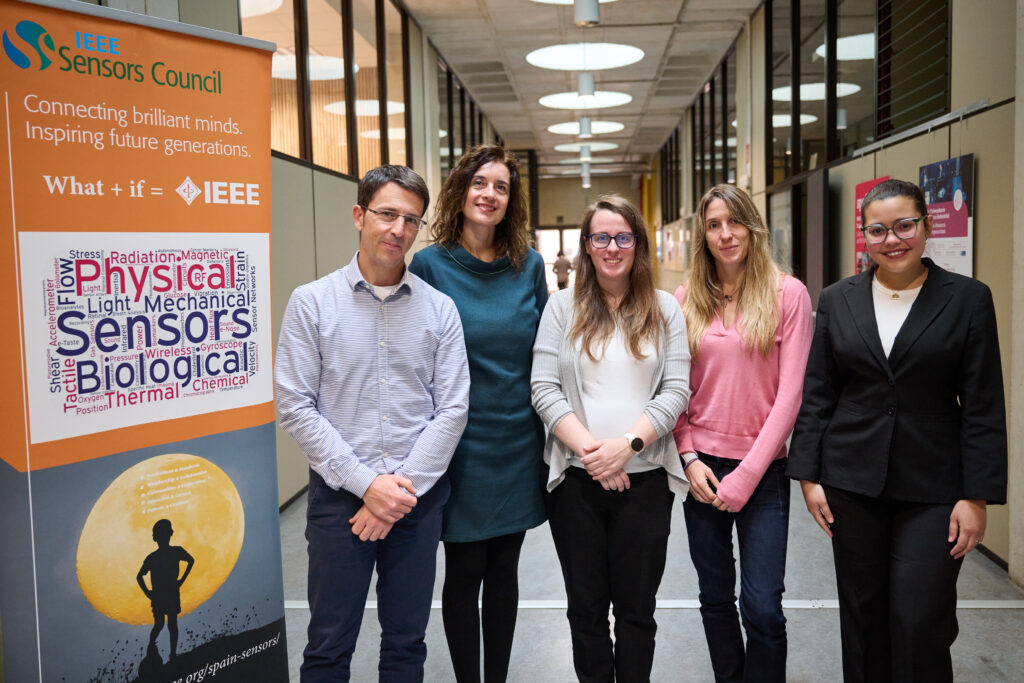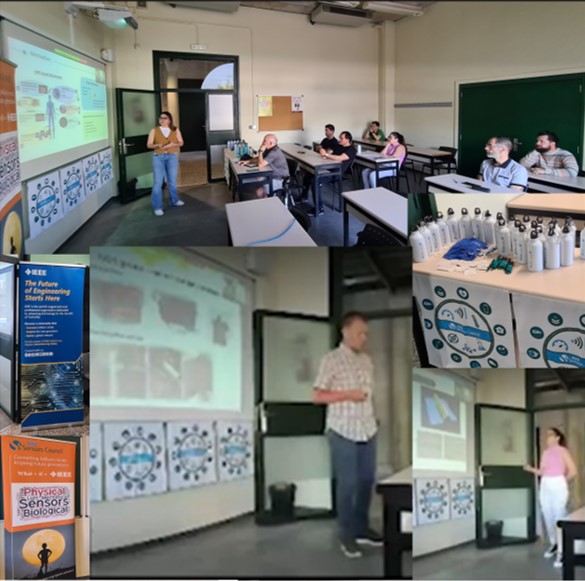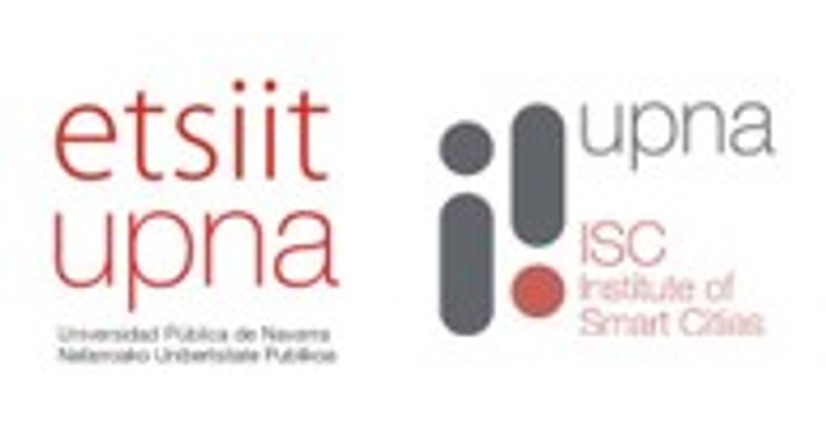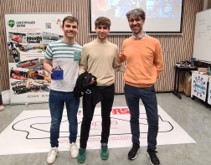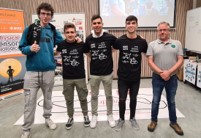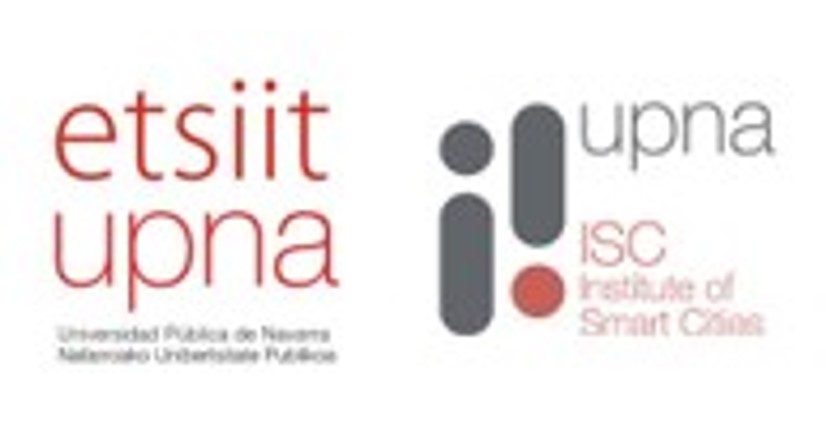Research activities from spanish women in sensors
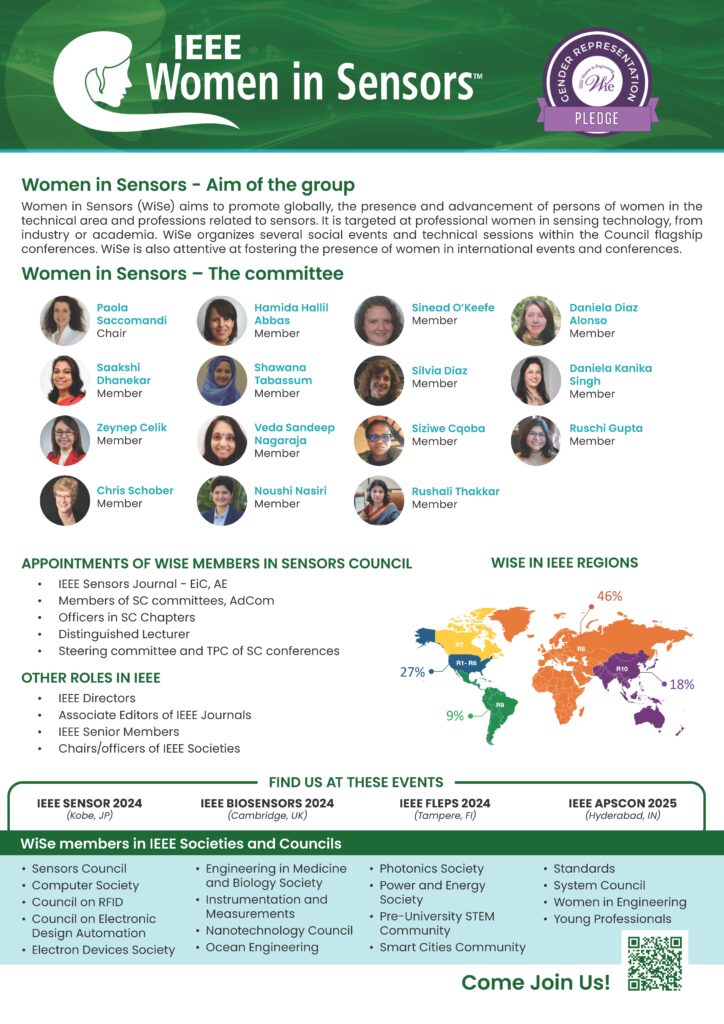
La Universidad Pública de Navarra (UPNA) celebró ayer, miércoles 6 de noviembre, una jornada dedicada a los últimos desarrollos en tecnología de sensores, en la que tres investigadoras de la institución académica (Leyre Catalán Ros, Rebeca Beatriz Dávila Galiana y Nora Millor Muruzábal) presentaron sus estudios sobre aplicaciones de dicha tecnología en áreas diversas, desde la generación de energía en entornos hostiles hasta la optimización de diagnósticos médicos. Dicha actividad fue organizada por la UPNA y el IEEE Women in Sensors Committee, una iniciativa dentro del IEEE Sensors Council, que pertenece al Instituto de Ingenieros Eléctricos y Electrónicos (IEEE, por sus siglas en inglés). Dicho comité tiene como objetivo promover y apoyar la participación de mujeres en el campo de la tecnología de sensores. Estos dispositivos detectan cambios físicos o químicos en el entorno y convierten esa información en señales eléctricas o digitales para su análisis o control.
En concreto, Leyre Catalán Ros, profesora del Departamento de Ingeniería e investigadora del Instituto de Smart Cities (ISC), relató la experiencia de la primera expedición de la UPNA a la Antártida, donde se instalaron generadores termoeléctricos que transforman el calor volcánico en electricidad. Este sistema permite alimentar sensores de monitoreo y sistemas de transmisión de datos basados en tecnologías de internet de las cosas (IoT, por sus siglas en inglés).
Análisis del movimiento para la salud
Por su parte, Nora Millor Muruzábal, profesora del Departamento de Estadística, Informática y Matemáticas e investigadora del Instituto INAMAT2, presentó el uso de sensores inerciales para el análisis de movimiento, que se aplican en fisioterapia, neurorrehabilitación, geriatría y servicios de prevención de empresas. Millor describió cómo estos sensores permiten un seguimiento preciso de la movilidad, el equilibrio y el movimiento funcional, y ofrecen datos valiosos para la atención personalizada de pacientes. Además, se adentró en los avances de inteligencia artificial aplicados a sensores, que podrían proporcionar diagnósticos predictivos y adaptativos en el ámbito de la salud y el deporte.
Finalmente, Rebeca Beatriz Dávila Galiana, estudiante de doctorado, expuso las ventajas de la impresión electrohidrodinámica, una técnica para fabricar sensores ópticos avanzados, de tamaño nanométrico, destinados, por ejemplo, a detectar la respiración y medir la temperatura.
La jornada fue abierta y clausurada por dos investigadores del Instituto ISC: la profesora Silvia Díaz Lucas, tesorera del Capítulo Español del IEEE Sensors e integrante del IEEE Women in Sensors Committee, y el catedrático Carlos Ruiz Zamarreño, presidente del Capítulo Conjunto del IEEE Sensors Council & Systems Council en España, respectivamente.

